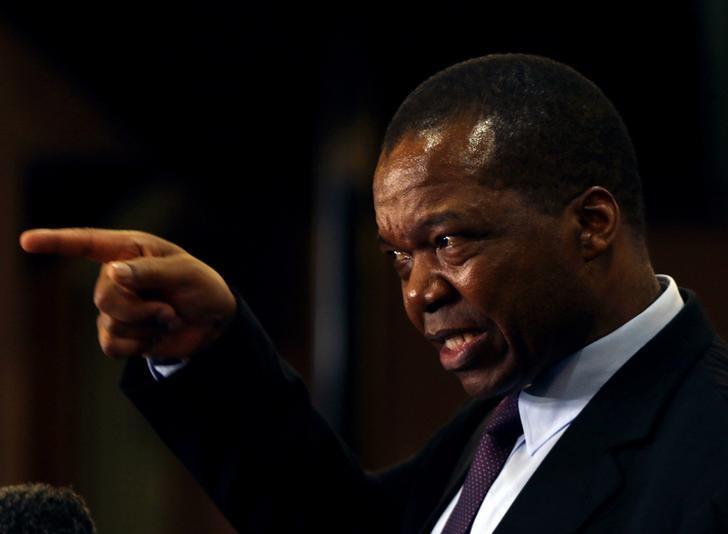Surge in remittances boosts economy, central bank says
Zimbabweans living abroad almost doubled the amount of money they sent home this year, bolstering the economy, Central Bank Governor John Mangudya said.
Remittances jumped to US$411,1 million in the first four months of the year, compared with US$221,9 million a year earlier, Mangudya said by phone Wednesday from the capital, Harare. The inflows are Zimbabwe’s second-biggest source of foreign-exchange earnings, after revenue from platinum exports.
“The economy continues to rebound due to the stability of the currency and inflation on account of the good agricultural out-turn and the positive impact of the diaspora remittances,” Mangudya said.
Economic reforms implemented by Finance Minister Mthuli Ncube and the central bank over the past three years have helped rein in annual inflation to 162percent, from a peak of 837,5 percent in July. The depreciation of Zimbabwe’s dollar has also slowed, with the currency weakening 3,9 percent against the US currency this year, compared with a 79 percent slump last year, according to data compiled by Bloomberg.
Central bank reforms, including the introduction of a currency auction, have increased the supply of foreign exchange in Zimbabwe, according to Coronation Fund Managers Ltd., one of the biggest asset managers in neighbouring South Africa. That’s helped make it easier for foreign investors in companies like Delta Corp., Zimbabwe’s biggest company by market value, and Econet Wireless Zimbabwe Ltd., it’s largest mobile operator, to repatriate funds from Zimbabwe, said Lloyd Mlotshwa, head of research at Harare-based brokerage IH Securities Ltd.
While the improving economic indicators have raised optimism about the outlook for the economy, the International Monetary Fund cautioned last month that broader reforms are needed to sustain the gains the authorities have made. The IMF expects Zimbabwe’s economy to grow 3,1 percent this year — less than half the 7,4 percent the nation’s Treasury has projected.
Zimbabwe’s economy has stagnated for two decades because of political and economic turmoil, and a bout of hyperinflation in 2008 wiped out savings and saw investors exit the country.
Remittances last year totalled US$1 billion, compared with US$635,7 million in 2019. The inflows were second only to platinum exports, which generated US$1,77 billion, according to central bank data. − Bloomberg.











